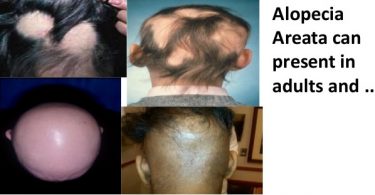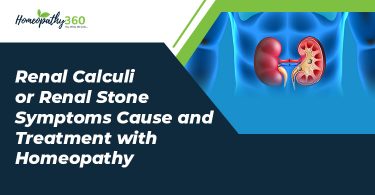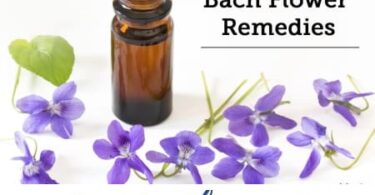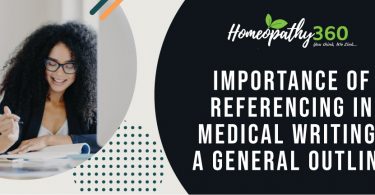Abstract
Most studies identify 3 psychiatric postpartum disorders: postpartum blues, postpartum depression, and postpartum psychosis. Postpartum blues is a self-limited period of instable mood and usually improves during the first weeks postpartum without treatment. It is detected in 39% to 85% of women after giving birth.1,2 Clinical manifestations of postpartum depression include sleep disturbances, mood swings, change in appetite, fear of harming the baby, extreme concern and worry about the baby, sadness, excessive crying, feelings of guilt and helplessness, concentration difficulties and memory disruption, loss of interest in daily activities, and recurrent thoughts of death, which may include suicidal ideation. It affects 10% to 15% of new mothers.3 Postpartum psychosis is a rare but serious condition that occurs in 1 to 2 women per 1000 within 2 days to 4 weeks following childbirth.4 It has been suggested that it is an overt presentation of bipolar disorder, timed to coincide with hormonal shifts after delivery.5 Marked by rapid onset, mood lability, disorganized thinking, hallucinations, and delusions, it puts women at significant risk for self-harm, harming their newborns, long-term low self-esteem, and poor mother-infant bonding.6,7
Postpartum psychosis carries long-lasting consequences for mother and child.8 In addition to the suffering and impairment associated with this disorder, there are long-term risks associated with the illness, including increased risk of recurrence of peripartum and non-peripartum psychosis with increased disease burden and subsequent depressive episodes.8,9 Furthermore, children of mothers with peripartum psychosis are at increased risk for developmental delays and behavioral problems.10–13 The gravity of postpartum mental illness is underscored by the results of a study conducted in the United Kingdom between 1994 and 1996,14 which showed that 12% of maternal deaths were due to psychiatric illness—10% from suicide, making this the largest single cause of postpartum death. This study also showed that postpartum suicide, in contrast to suicide by women in general, is often wrought by violent means rather than by drug overdose.
Despite the prevalence of postpartum depression and the associated clinical impairment, recent reports show that most affected pregnant women are hesitant about taking antidepressant drugs, with a high percentage discontinuing their use.15–17 The widespread undertreatment of perinatal depression is of concern in light of the many risks to both women and developing infants, including intrauterine growth retardation, low birth weight, and preterm birth.18 Battle et al19 suggest that the reluctance of pregnant women to take antidepressant drugs should encourage clinicians to discuss with their patients the use of psychological interventions and alternative forms of treatment—light therapy, massage therapy, omega-3 fatty acid supplementation, and others. Researchers are beginning to study complementary and alternative medicine therapies for postpartum depression to broaden the scope of current treatments and to reach more women.20–22 A benefit of these methods is their lack of negative impact on children in the short-term or long-term and the possibility they may affect them positively.19 They also have no serious side effects in the parturient either during pregnancy or after delivery. Furthermore, women are more willing to use these methods, since they are regarded as safe.
We present a case of severe postpartum depression that was treated successfully with homeopathy.
Case Presentation
A 25-year-old primiparous medical student on her 14th day postpartum was admitted to the psychiatric clinic in the County Emergency Hospital’s Department of Neuroscience in Cluj-Napoca, Romania, with psychopathological symptoms dominated by psychomotor agitation, disorganized behavior, hallucinatory-delirium, soliloquy, ideo-verbal dissociation, and aggression. The patient had a history of a first episode at age 17, when she responded well to antipsychotic and antidepressant treatment. Treatment was stopped 2 years later, and a second episode occurred 18 months after that. She followed the indicated treatment for 3 more years. At age 23, she married and became pregnant about a year later. The evolution of her pregnancy was normal apart from an exaggerated need to sleep. At admission, the patient presented with a bizarre, fixed gaze, avoiding eye contact, hypomobile mimicry and gesture, low perceptual threshold, possible complex auditory and visual hallucinations, olfactory hallucinations, concentrative aprosexia with hyperprosexia centered on hallucinatory-delirious themes, ideo-verbal dissociation, paranoid delirious ideas of interpretation, of persecution, mystical, emotional lability, affective flattening, motor and verbal negativism, diminished instincts, and mixed insomnia. Routine diagnostic assessment, including physical examination, laboratory studies, and a cerebral computed tomography scan, were normal. The patient scored 24/30 on the Edinburgh Postnatal Depression Scale, a 10-item self-report scale (scored from 0 to 3) designed to identify women experiencing depressive symptoms (cutoff score to identify a women as depressive: ≥13); at the 3 subscales of the Positive and Negative Syndrome Scale used to assess schizophrenia symptom intensity, she scored as follows: Positive Scale Score, 39/49; Negative Scale Score, 42/49; General Psychopathology Scale, 72/16-112; she scored 45/100 on the Global Assessment of Functionality Scale, a numeric scale used to rate subjectively the social, occupational, and psychological functioning of adults; and 6/7 on the Clinical Global Impression scale, which measures clinical outcomes in symptom severity and treatment efficacy in subjects with psychoses.
Treatment was started with haloperidol (10 mg/day), olanzapine (20 mg/day), and diazepam (30 mg/day) and maintained through the 8 days of hospitalization in the department. Due to the persistent depression, electroconvulsive therapy was proposed but rejected by the patient and her family, who decided on homeopathic treatment. At their request, the patient was discharged on her own responsibility.
On the day of discharge, homeopathic treatment was initiated, using Agnus Castus30C, 7 granules sublingually twice a day. Agnus castus (also known as chaste tree, chasteberry), Abraham’s balm, lilac chastetree, and monk’s pepper) is a native Mediterranean-region tree, frequently used in homeopathy to treat depressive conditions with suicidal thoughts.23
The first 2 days of treatment were characterized by a prolonged sleep reaction, with the patient waking only to eat. From the third day, an impressive improvement was observed in which the psychomotor agitation, hallucinations, garrulity, and the behavioral disorders disappeared. The third day was also characterized by disappearance of all other psychiatric symptoms—persecution mania, hallucinations, and psychomotor agitation. Slight somnolence and time and space disorientation could still be observed. From the fifth day, she resumed nursing her baby. Three weeks after initiation of treatment, all symptoms had vanished and treatment was stopped. Her social and family reintegration was complete after about 2 weeks.
After 4 weeks of treatment, she scored 10 on the Edinburgh Postnatal Depression Scale. On the 3 subscales of the Positive and Negative Syndrome Scale, she scored as follows: Positive Scale Score, 14; Negative Scale Score, 17; and General Psychopathology Scale, 35. She scored 80 on the Global Assessment of Functionality Scale, and 2 on the Clinical Global Impression scale.
Today, 9 months after hospitalization and 8 months after discontinuing treatment, the patient is complaint free, despite experiencing a stressful period when she took her medical licensing examination—in which she achieved a high grade. She is currently enjoying a problem-free second pregnancy!
Conclusion
Homeopathy is a medical system based on 2 theories: “like cures like”—a disease can be cured by a substance that produces similar symptoms in healthy people; and the “law of minimum dose”—the lower the medication dose the greater its effectiveness.24 Homeopathy is not an indicative method in which one medicine treats one disease. It is, rather, a method in which medicine is tailored to each individual. Nevertheless, Vithoulkas described in 2008 that Agnus castus as a remedy that may be appropriate for treating postpartum depression.25
The dramatic improvement in the patient’s condition with the use of homeopathic medication was corroborated by all parameters evaluated by the 3 scales routinely used both in this department and in this case.
As expected in homeopathic medicine, no side effects were observed. Despite the stressful period that followed treatment (new motherhood and preparation for the licensing examination) and lack of any conventional medication, no relapse occurred. Too short a time has elapsed to draw conclusions regarding the claim that homeopathic treatment produces long-lasting remission or even cure, but the fact that the patient’s mood is very good, her energy level is higher than in the past, and her coping ability impeccable are all extremely promising.
We present a case of a postpartum depression treated homeopathically, treatment that was both free of side effects and inexpensive. If the homeopathic claim is correct, we can expect a long-lasting remission or even a complete cure without any further treatment. Considering the high noncompliance of women with postpartum depression with conventional treatment (treatment that is stigmatized by health care providers and by negative information),26 and the reluctance of breastfeeding women to take antidepressant medication, which may pass to the baby,27,28 research in safe complementary medical methods is justified. One of these methods should be homeopathy.
Vitalie Văcăraş and George Vithoulkas are joint first authors.
Author Contributions
Vitalie Văcăraş: Treatment of patient, writing the article draft, and writing the final version. George Vithoulkas: Co-planning of the treatment plan and writing the article draft. Anca Dana Buzoianu: Documentation and pharmacological revision. Ioan Mărginean: Documentation and writing the article draft. Zoltan Major: Documentation and pharmacological revision. Veronica Văcăraş: Psychological evaluation and writing the article draft. Romulus Dan Nicoară: Psychological evaluation. Menachem Oberbaum: Advising at the treatment planning, writing the article draft, and writing the final version of the article.
Declaration of Conflicting Interests
The authors declared no potential conflicts of interest with respect to the research, authorship, and/or publication of this article.
Funding
The authors received no financial support for the research, authorship, and/or publication of this article.
References
| 1. | O’Hara, MW, Zekoski, EM, Philips, LH, Wright, EJ. Controlled prospective study of postpartum mood disorders: comparison of childbearing and nonchildbearing women. J Abnorm Psychol. 1990;99:3–15. Google Scholar | Crossref | Medline | ISI |
| 2. | Buist, A . Perinatal depression, assessment and management. Aust Fam Physician. 2006;35:670–673. Google Scholar | Medline |
| 3. | Patel, M, Bailey, RK, Jabeen, S, Ali, S, Barker, NC, Osiezagha, K. Postpartum depression: a review. J Health Care Poor Underserved. 2012;23:534–542. Google Scholar | Crossref | Medline | ISI |
| 4. | Heron, J, McGuinness, M, Blackmore, ER, Craddock, N, Jones, I. Early postpartum symptoms in puerperal psychosis. BJOG. 2008;115:348–353. Google Scholar | Crossref | Medline |
| 5. | Sit, D, Rothschild, AJ, Wisner, KL. A review of postpartum psychosis. J Womens Health. 2006;15:352–368. Google Scholar | Crossref | Medline | ISI |
| 6. | Posmontier, B . The role of midwives in facilitating recovery in postpartum psychosis. J Midwifery Womens Health. 2010;55:430–437. Google Scholar | Crossref | Medline |
| 7. | Sharma, V, Smith, A, Khan, M. The relationship between duration of labour, time of delivery, and puerperal psychosis. J Affect Disord. 2004;83:215–220. Google Scholar | Crossref | Medline |
| 8. | Logsdon, MC, Wisner, KL, Pinto-Foltz, MD. The impact of peripartum depression on mothering. J Obstet Gynecol Neonatal Nurs. 2006;35:652–658. Google Scholar | Crossref | Medline |
| 9. | Logsdon, MC, Usui, W. Psychosocial predictors of peripartum depression in diverse groups of women. West J Nurs Res. 2001;23:563–574. Google Scholar | SAGE Journals |
| 10. | Beck, CT . The effects of peripartum depression on child development: a meta-analysis. Arch Psychiatr Nurs. 1998;12:12–20. Google Scholar | Crossref | Medline |
| 11. | Hay, DF, Pawlby, S, Angold, A, Harold, GT, Sharp, D. Pathways to violence in the children of mothers who were depressed postpartum. Dev Psychol. 2003;39:1083–1094. Google Scholar | Crossref | Medline |
| 12. | Murray, L, Fiori-Cowley, A, Hooper, R, Cooper, P. The impact of postnatal depression and associated adversity on early mother-infant interactions and later infant outcome. Child Dev. 1996;67:2512–2526. Google Scholar | Crossref | Medline | ISI |
| 13. | Nulman, I, Koren, G, Rovet, J. Exposure to venlafaxine, selective serotonin reuptake inhibitors or untreated maternal depression. Am J Psychiatry. 2012;169:1165–1174. Google Scholar | Crossref | Medline |
| 14. | Department of Health, Scottish Home and Health Department , Department of Health and Social Security. Why Mothers Die: Report on Confidential Enquiries Into 1994-1996. London, England: Stationery Office; 1998. Google Scholar |
| 15. | Flynn, HA, Blow, FC, Marcus, SM. Rates and predictors of depression treatment among pregnant women in hospital-affiliated obstetrics practices. Gen Hosp Psychiatry. 2006;28:289–295. Google Scholar | Crossref | Medline | ISI |
| 16. | Marcus, SM, Flynn, HA, Blow, FC, Barry, KL. Depressive symptoms among pregnant women screened in obstetric settings. J Womens Health. 2003;12:373–380. Google Scholar | Crossref | Medline | ISI |
| 17. | Smith, MV, Rosenheck, RA, Cavaleri, MA, Howell, HB, Poschman, K, Yonkers, KA. Screening for and detection of depression, panic disorder, and PTSD in public-sector obstetric clinics. Psychiatr Serv. 2004;55:407–414. Google Scholar | Crossref | Medline |
| 18. | Grote, NK, Bridge, JA, Gavin, AR, Melville, JL, Iyengar, S, Katon, WJ. A meta-analysis of depression during pregnancy and the risk of preterm birth, low birth weight, and intrauterine growth restriction. Arch Gen Psychiatry. 2010;67:1012–1024. Google Scholar | Crossref | Medline |
| 19. | Battle, CL, Salisbury, AL, Schofield, CA, Ortiz-Hernandez, S. Perinatal antidepressant use: understanding women’s preferences and concerns. J Psychiatr Pract. 2013;19:443–453. Google Scholar | Crossref | Medline | ISI |
| 20. | Buttner, MM, Brock, RL, O’Hara, MW, Stuart, S. Efficacy of yoga for depressed postpartum women: a randomized controlled trial. Complement Ther Clin Pract. 2015;21:94–100. Google Scholar | Crossref | Medline |
| 21. | Lin, KY, Hu, YT, Chang, KJ, Lin, HF, Tsauo, JY. Effects of yoga on psychological health, quality of life, and physical health of patients with cancer: a meta-analysis. Evid Based Complement Alternat Med. 2011;2011:659876. Google Scholar | Crossref | Medline | ISI |
| 22. | Cramer, H, Lauche, R, Langhorst, J, Dobos, G. Yoga for depression: a systematic review and meta-analysis. Depress Anxiety. 2013;30:1068–1083. Google Scholar | Crossref | Medline | ISI |
| 23. | Mezger, J . Gesichtete homeopathische Arzneimittellehre [Sighted Homeopathic Materia Medica]. Vol. 1. 5th ed. Heidelberg, Germany: Karl F. Haug Verlag; 1981:101–103. Google Scholar |
| 24. | National Center for Complementary and Alternative Medicine . Homeopathy. https://nccih.nih.gov/health/homeopathy. Accessed January 23, 2016. Google Scholar |
| 25. | Vithoulkas, G . Materia Medica Viva. Ulrich Burgdorf Verlag. Goettingen; 1991:125–133. Google Scholar |
| 26. | Gawley, L, Einarson, A, Bowen, A. Stigma and attitudes towards antenatal depression and antidepressant use during pregnancy in healthcare students. Adv Health Sci Educ Theory Pract. 2011;16:669–679. Google Scholar | Crossref | Medline |
| 27. | Boath, E, Bradley, E, Henshaw, C. Women’s views of antidepressants in the treatment of postnatal depression. J Psychosom Obstet Gynaecol. 2004;25:221–233. Google Scholar | Crossref | Medline |
| 28. | Whitton, A, Warner, R, Appleby, L. The pathway to care in post-natal depression: women’s attitudes to post-natal depression and its treatment. Br J Gen Pract. 1996;46:427–428. Google Scholar | Medline |





